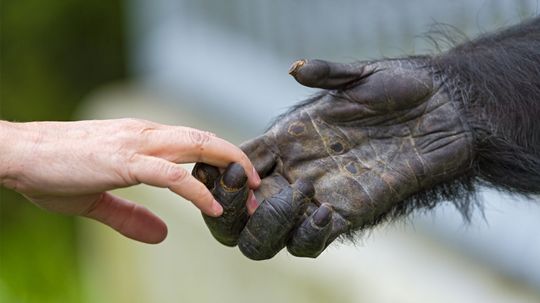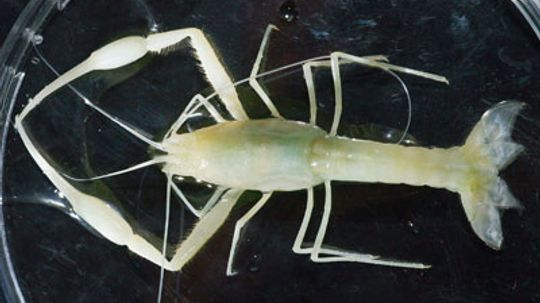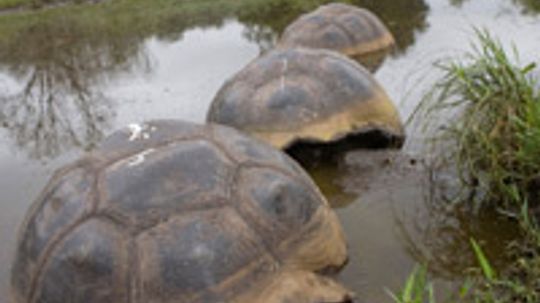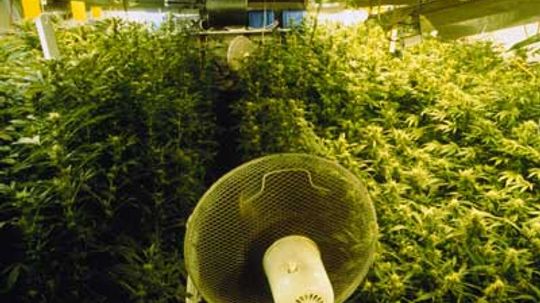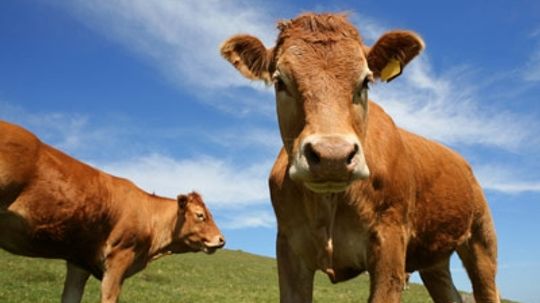Life Science
From the smallest microbe to the largest mammal, Life Science explores the origins, evolution and expansion of life in all its forms. Explore a wide range of topics from biology to genetics and evolution.

Central Heterochromia: When to Worry About Eye Color

10 Types of Noses to Spot in a Crowd
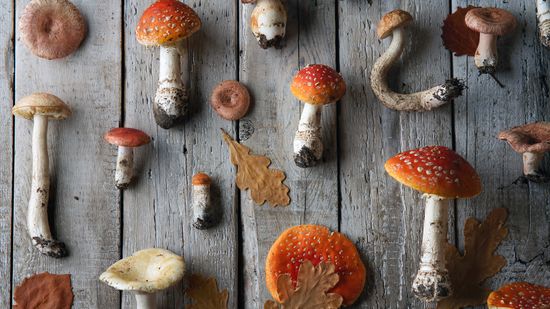
3 Major Types of Mushrooms: Edible, Wild and Poisonous

3 Types of Trees You'll Find All Over the Planet
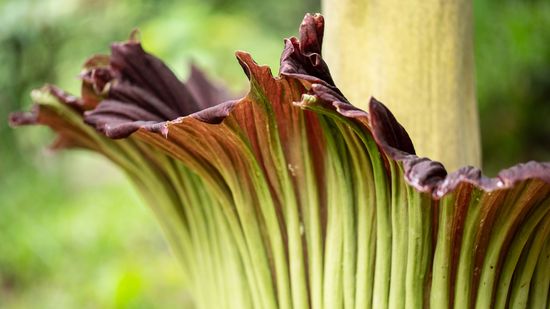
A Corpse Flower Can Grow Over 12 Feet (3.7 Meters) Tall
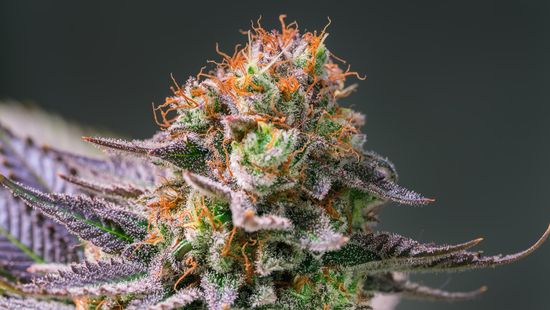
Indica vs. Sativa: How to Distinguish Between Cannabis Plants
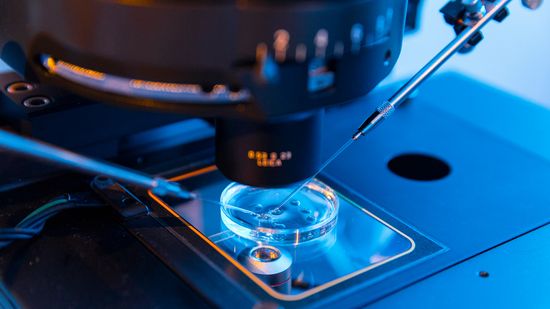
In Vivo vs. In Vitro Trials (and Why Combining Both Is Best)

Hypertonic vs. Hypotonic Solutions: Differences and Uses

Your Phone Is a Germ Factory, So Stop Taking It to the Toilet

Neanderthal vs. Homo Sapien: Separate Species With Different Fates

Howstuffworks Interviews: Extinction Level Events with Annalee Newitz

What will the Earth look like in 50,000 years?

Is a Woolly Mammoth Clone Even Possible?

The Most Common Hair Color Isn't Blonde

What Is the Most Common Eye Color? Over 70% of People Have It

9 Types of Intelligence: The Many Ways to Expand Your Mind

Phineas Gage and the Birth of Modern Neuroscience

Call of the Void: A Counterintuitive Form of Self-preservation
Learn More / Page 7
A gulf of difference may separate our human world of empires, science and spirituality from the animal wilds of the other great apes. But the genetic differences are pretty meager.
By Robert Lamb & Desiree Bowie
Can humans live forever? No, but thanks to the discovery of the Hayflick limit, we know that cells can conceivably divide forever without dying.
By Josh Clark
Everything has to start somewhere, including us humans. But where? Was it Africa, or were there multiple ground zeros for humanity's explosive growth and eventual world domination?
By Robert Lamb
Advertisement
It's commonly believed that that grandpa has more knowledge than his young whippersnapper of a grandkid. But do wrinkles on the face really relate to wrinkles on the brain?
Think about how you would describe yourself to a stranger. Would you emphasize your keen sense of humor or physical features you're fond of? Or would you spend more time on supposed "trouble spots"? Your answer largely depends on your mental picture.
That bowling ball of white meat in your oven is a far cry from its wild ancestors. How did a single breed of top-heavy, dim-witted birds come to dominate the turkey market?
A funny thing happens when you live in complete darkness. You lose your eyesight. At least that's what's happened to the species that have evolved inside our deepest, darkest caves.
By Debra Ronca
Advertisement
The Galapagos Islands may have played a grand role in Darwin's theory of evolution, but they're notable for more than their finches. What strange species populate these remote islands?
TV shows, movies and books depict characters that have suffered a bad injury to the head and have lost their memory. But could it really happen that fast? And will their memory ever return?
Ten-tier wedding cakes, bagels slathered with cream cheese and slim, crusty baguettes -- we owe them all to wheat. What's the story behind this ancient, ubiquitous food crop?
By Robert Lamb
Have you ever suspected your neighbor was up to something illegal? He's always home and he gets midnight deliveries. Doesn't he have a job? Maybe he does, just not the kind you think.
By Robert Lamb
Advertisement
Ignorance is bliss. But what if you're more than just unaware? If you are dumb as a doornail, flat-out foolish or dim-witted, are you happier than the genius next door?
Laughter may be the best medicine, but can it actually cure an illness? Some doctors are prescribing a daily case of the giggles along with conventional treatments.
The Declaration of Independence is one of the most significant documents in American history. However, the origin of one of its signature phrases -- the pursuit of happiness -- is shrouded in mystery.
By Josh Clark
Marriage entails waking up beside the one you love and sharing cozy, homemade dinners for two. But when the honeymoon haze clears, are married people happier than singles?
Advertisement
How does a laughter milkshake sound? What about a joy cocktail? Though the former may sound like part of a kid's meal and the latter like a happy hour order, they're both related to laughter yoga.
The authors of chain emails often tell you to smile more, with the added claim that it takes more muscles to frown. Ever questioned this piece of wisdom? We have an answer for you.
By Tom Scheve
Smiling isn't complicated: your mouth turns up, your cheeks lift and your eyes crinkle. You're happy and it shows. But can every smile -- even a fake one -- spread that cheerful feeling?
By Julia Layton
We love to play with and fuss over our pets, but have you wondered if they were having as much fun as you were? Can animals actually feel happiness?
By Josh Clark
Advertisement
What are your happiest childhood memories? What do you remember most about them -- the things you bought or the gifts you received, or the events themselves?
By Josh Clark
From giggles to guffaws and chuckles to cackles, humans laugh in a lot of different ways. But what do each of those laughs mean, and are they all related to humor?
From an adult's point of view, kids have it made, spending their days playing and goofing off, with no responsibilities to worry about. But are kids really jumping for joy more often than the rest of us?
By Tom Scheve
Normally, we laugh because something's funny, but sometimes laughter can be something more serious -- a medical symptom. What separates a hearty guffaw from a signal of poor health?
Advertisement
It doesn't exactly seem like something the human body would do, let a large portion of itself go to complete waste. Is it true that most of your brain is on permanent hiatus?
Three weeks of hard work. Is that all it takes to kick your smoking habit, taste for junk food or serial inability to stop hitting the snooze button? Sounds almost too good to be true, doesn't it?
By Julia Layton
